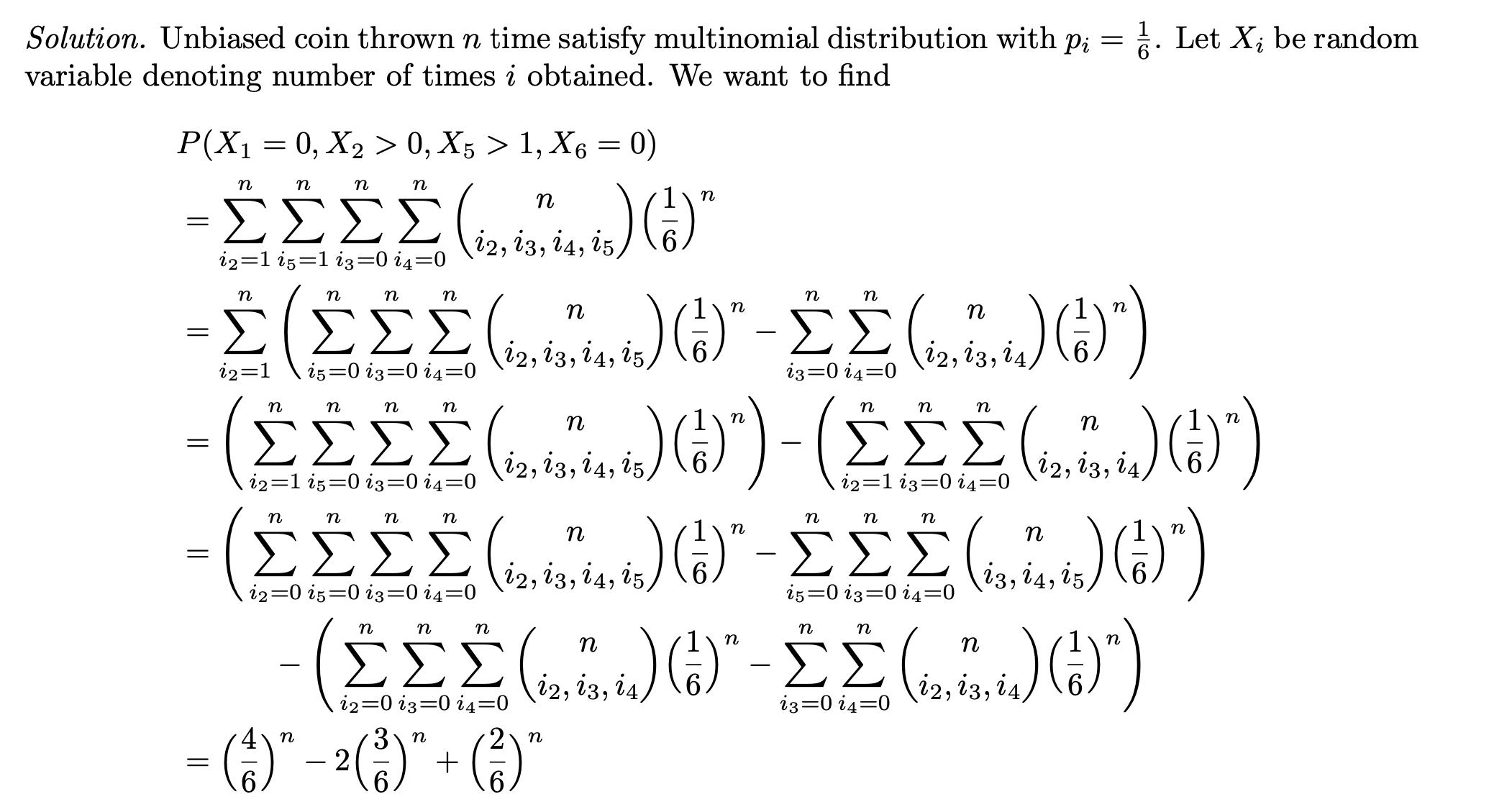An unbiased die is thrown $n$ times; let $M$ and $m$ denote the maximum and minimum points obtained respectively. Find $P\left( m=2, M=5 \right)$. (Hint: begin with $P\left (m\geq2, M\leq 5 \right)$.)
The question is from elementary probability theory (Kai Lai Chung)
Here is my thought process:
The minimum $m$ and maximum $M$ points obtained in $n$ throws are independent events. So:
$$ P(m\geq2, M\leq5) = P(m \geq 2)P(M\leq5)$$ $$ P(M\leq5) = \left(\frac{5}{6}\right)^n $$ $$ P(m\geq2) = 1-\left(\frac{4}{6}\right)^n $$ $$P(m\geq2, M\leq5) = \left(\frac{5}{6}\right)^n - \left(\frac{5}{9}\right)^n$$
under above conditions, $P(m=2, M=5)$ is just $\frac{1}{6}$ in all combinations. So:
$$ P(m=2, M=5) = \left(\frac{5}{6}\right)^n - \frac{\left(\frac{5}{9}\right)^n}{6} $$
But the answer is $\left(\frac{4}{6}\right)^n - 2\left(\frac{3}{6}\right)^n + \left(\frac{2}{6}\right)^n$.
Can anyone help me figure out where I went wrong?

